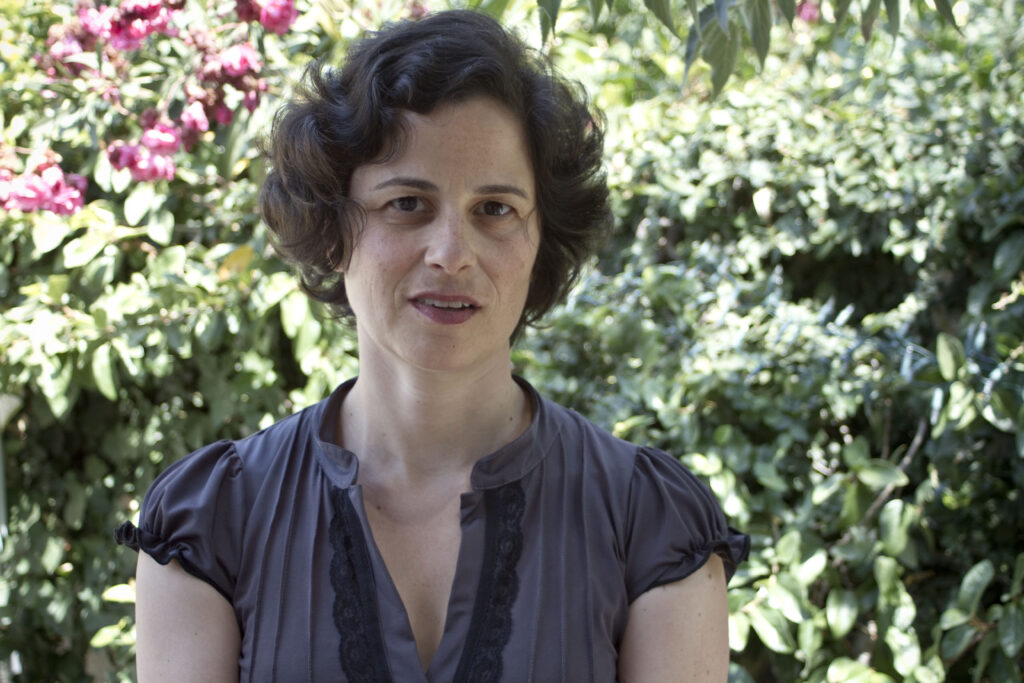Astronauts, Explorers, Poets

How many unexpected changes have we all had to deal with in the almost two years of pandemic life? Everyone has a story: a drama, a crisis, a bad surprise, a misfortune, large or small, during this stranger-things time that so many of us have likened to a science fiction movie.
Recently, however, this analogy stopped working for me because fiction—even the oddest science fiction story—has a beginning, a middle, and an end. At some point it’s over.
Now, I have always been a reader of explorers’ tales—Magellan and his ill-fated circumnavigation of the world; Darwin and the voyage of the Beagle; Shackleton and his impossible journey across the Antarctic ice—and the pandemic is really starting to look less like a science fiction story or movie and a lot more like a passage into the unknown. A walk across the North Pole, the South Pole, or maybe even the moon.
And the pandemic is really starting to look less like a science fiction story or movie and a lot more like a passage into the unknown.
Anyone who has traveled knows how important it is to bring tools—in a purse, a carryon, a ship’s hold—to assist in successfully handling whatever unexpected challenges materialize whenever we leave the comforts of home. For the explorers of old, things like biscuits, water, dogs, construction implements, lumber, and lifeboats were necessary for survival if the boat foundered or ended up trapped in ice (as happened in Shackleton’s case). For today’s travelers, it’s the toothbrush, the change of clothes, extra pills, a snack or two—because flights get cancelled or missed, buses overheat and there’s a chance that we’ll end up on the side of the road or the dreaded airport waiting area.
During these pandemic times, teachers, students and families have had to embark on an impossible journey, filled with unexpected events. The simple act of leaving the house and going to school now means navigating an obstacle course into another dimension: one positive case leads to multiple tests—the covid kind, not math or English—and then all of a sudden we’re back at home where we started. How? Why? Who knows—but it’s happened to all of us these past two years, and it may well happen again. And yes, we had some tools to deal with it, but not much and the consequences are materializing in learning lags and losses.
In the US, it is estimated that elementary schoolers have fallen behind, on average, between two and four months in reading. In Mexico, hundreds of thousands of students did not complete the 2019-2020 school year. And in Chile, some 8% of all students simply dropped out during remote learning. (references below)
These are sobering statistics. And there’s one even more worrying one: the mental and emotional health of our kids. A 2021 report from the US Department of Education calls the situation, quite plainly, a crisis that has reached its peak, and a survey of some 16,000 parents conducted by McKinsey revealed that 35% are seriously concerned about the state of their children’s mental and emotional health, and 80% are at least mildly concerned.
As an educational community we have much terrain to cover and recover in the coming years – academically and emotionally, for our students. This makes me think of Shackleton, his boat trapped in the Antarctic ice, and his crew looking all around and seeing only the infinite white. Looking for their Northern star. Might we not be in a similar predicament?
The situation is so dramatic that UNESCO and several countries around the world have identified priority curriculums, to help teachers, students and families focus on the skills and content that are most essential for our kids. UNESCO points out that the formulation of any reduced or priority-oriented curriculum ought to focus on being flexible, practical, realistic and achievable.
… promoting a “pedagogy of empathy” that considers the care and concern for students’ and families’ emotional well-being.
The Mexican Secretary of Education has emphasized those learning opportunities that strengthen students’ resilience. In Uruguay, the Education Ministry is promoting a “pedagogy of empathy” that takes into account the care and concern for students’ and families’ emotional well-being.
No doubt we are looking into the unknown. But these recommendations are an important step toward giving our students, teachers and families the tools they (we) will need to face the unknown, no matter what it is.
What, then, does this have to do with a blog about reading? Everything. We have an infinitely vast opportunity in our language arts classes to implement these recommendations – and we can start tomorrow if we want. I am not—as you might imagine—going to suggest we read a science fiction tale (although if you can’t help yourself here is an amazing Isaac Asimov story about futuristic, remote schooling). No. What I propose is poetry.
I confess that until recently I was not much of a poetry reader. As a literature and translation teacher, I avoided the genre because it scared me, made me uncertain. I like reading something, identifying characters, themes, characteristics, and leitmotifs. I like coming out of a novel with a new bit of concrete knowledge or understanding of something. Poetry doesn’t really give us that—it tends to give us images, sensations, emotions, observations, thoughts that don’t come in sequential, logical order.
Poetry doesn’t really give us that—it tends to give us images, sensations, emotions, observations, thoughts that don’t come in sequential, logical order.
Of course poems are the result of a mental process involving thought and reflection but most of all what predominates are sensations, fleeting experiences, impressions that communicate something else entirely. In a way, reading poetry is a bit like walking on the infinite ice, or the moon… unsure of our bearings on that first reading, but then with a second, third reading we start to feel on firmer ground.
And as we reread, talk, and connect the reading to personal experiences, we start to feel something new. A new kind of certainty and confidence. This is not narrative, it’s not predictable, it’s not logic—it puts us in touch with something else, it grounds us in a different way. Just like the challenges of life during the pandemic.
The text that I very enthusiastically invite you to read this month is an invitation to immerse ourselves in a world that we may not fully understand. It is called “Elefantes polares” and it’s first lines are as follows:
Cuando llegué al curso nuevo, me hicieron sentar en el último banco, el que daba a la ventana. Fue el mismo año que mis padres se separaron y se cambiaron de país. Ese año también nos visitó una manada de elefantes polares.”
The first time I read this, I did not understand. I had to text my colleagues in the editorial department to find out what they made of it, to see if they could help me find the “northern star” of Vladimir Rivera’s poetic prose. We had a lovely conversation, with several different perspectives on the meaning of those polar elephants and many other things, among them flying spaceships, an astronaut mother who sweeps up the moon, a roller coaster that travels around the earth, a flaming salamander perched on a throne. My colleagues and I also spoke about the protagonist, a boy whose parents have separated and brought him to a new country, where he must attend a new school and speak a new language. A boy, just like Shackleton in the ice or Magellan in the Pacific, or us in the middle of this pandemic. Who among us has not felt alone in the classroom, learning a new language, looking out the window, filled with doubts? In the text, the polar elephants accompany our protagonist. Are they “good”? “Bad”? Do elephants exist on the earth’s poles?
That’s not really the point. The point is, much like life itself, poetry does not give us answers. It raises questions and feelings and ambiguities that propose a space for dialogue, where we may share points of view and perhaps even crack open the door to sensitive, delicate topics that are universal but difficult to tackle with students directly.
The changes of the past two years have left their mark on all of us. Our children, our students are sensitive, attentive souls who inevitably react (as we adults do) to the world that they are just beginning to understand. And without minimizing the seriousness of the pandemic, I do think it has given us a chance to construct new ways of thinking and learning, from the emotional, sensory space, so that our kids can find their own north star, their polar elephant,
Our children, our students are sensitive, attentive souls who inevitable react (as we adults so) to the world that they are just beginning to understand.
or interior center that will allow them to challenge the challenges posed by Covid—and any other obstacle life may place in their path. And may they do so with a deeper vision of human experience. This, I am certain, is what helped Ernest Shackleton and his crew to survive their Antarctic odyssey—two years of inconceivable perseverance, wisdom, grit, and spirit, in which they were also able to create spaces for reading, conversation and yes, a bit of laughter in the middle of that great white uncertainty.
